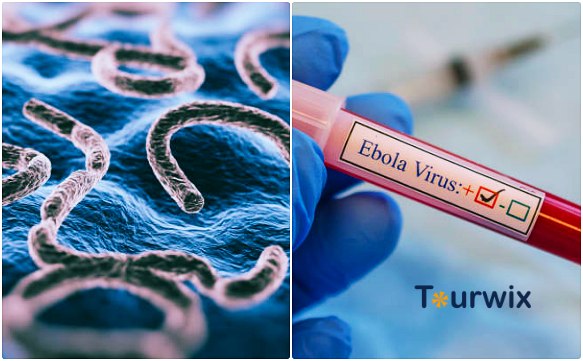
Health
20.02.2022 1152
What is the Ebola virus? What are the symptoms and treatments?
Tourwix Travel will provide a brief answer to the question, "What is Ebola?" It is a viral infection that causes high fever, internal and external bleeding, and can be life-threatening. It is caused by a microorganism called Ebola virus disease.
Ebola has been known around the world since it appeared in Central Africa in the mid-1970s. The disease is important because there are no effective drugs or vaccines to treat it, and many cases result in death.
What is the Ebola virus?
The Ebola virus causes a febrile illness that causes life-threatening bleeding and kills 50% to 90% of cases. The virus is an RNA virus of the Filoviridae family. During the first epidemic, about 260 people died from the disease.
How the Ebola virus is transmitted.
The origin of the Ebola virus is still unclear. However, some monkeys are believed to be the primary host of the Ebola virus. Flying foxes are considered natural pathogens. One theory is that the virus spread to monkeys, pigs and other animals that ate leftover fruit from bats.
They say the virus is transmitted from animals to humans through contact with blood and body fluids. It can be transmitted directly from animals to humans or from human to human through contact with blood and body fluids. The virus has been detected in every imaginable bodily fluid such as urine, feces, vomit, tears and breast milk. A key risk group for infection are healthcare workers due to their close contact with patients.
Since there is no cure for this disease, preventing transmission is the key to prevention. For this reason, patients and animals must be quarantined as soon as possible. Dead animal carcasses must be destroyed carefully. The meat of these animals, especially raw meat, should not be eaten.
Five different groups of Ebola viruses that cause the disease have been identified. Three of these virus groups have caused major outbreaks in humans. Unlike many tropical infections, transmission of Ebola virus infection through mosquito bites has not been proven.
What are the symptoms of Ebola disease?
The time from transmission of the virus to the onset of symptoms is 2 to 21 days. Some important symptoms that can be seen are headache, body aches, high fever, ocular conjunctivitis, bleeding, nausea and rash. Experts say kidney and liver dysfunction are also seen. In the blood count, the number of white blood cells and platelets decreases. Severe internal and external bleeding, especially bleeding from the mucous membranes, can occur for days after the onset of the disease.
None of these obvious symptoms are specific to Ebola, and other serious infections can also cause fever, bleeding, and organ damage. This makes it difficult for doctors to make a careful and accurate diagnosis initially.
As Ebola spreads, different organ failures evolve into different failures. In addition, encephalitis can occur, which worsens the prognosis. The following patients, who are experts in this field, have severe cases resembling septic shock and have a high mortality rate. The cause of death from this disease is usually heart failure.
On the one hand, pathogens can be detected both in the blood and on the skin. Take a sample to control Ebola. The formation of viral antibodies usually occurs only in the late stages of the disease. Only private, high-security laboratories are allowed to process Ebola and examine samples from patients suspected of being infected with Ebola.
If Ebola is suspected, the patient's blood values are also closely monitored. In addition, close monitoring for bleeding or impaired organ function is required.
Method of treating Ebola disease
So far, no effective treatment for Ebola has been found, so the mortality rate is high. Likewise, there are no standard treatment recommendations. Treatment with antiviral drugs can be considered but, unlike similar viral diseases, is unlikely to be successful.
The most important thing with an Ebola virus infection is to get the patient to the intensive care unit. Specialists recommend electrolyte and fluid support for successful treatment. Rapid replacement procedures such as dialysis should be instituted for renal failure. Unfortunately, in countries where Ebola occurs (Central Africa), such a medical intervention is often not possible.


